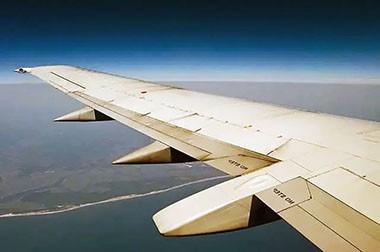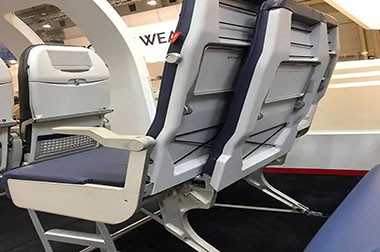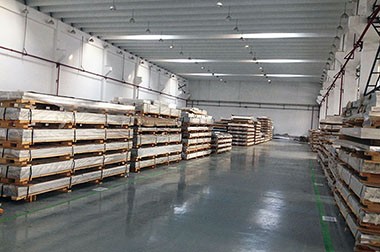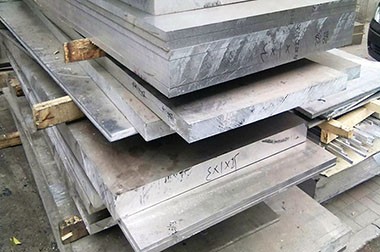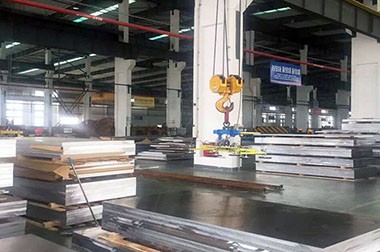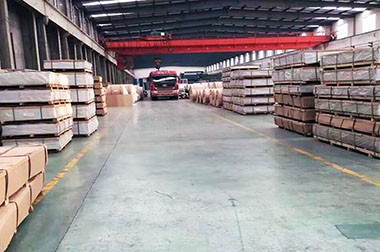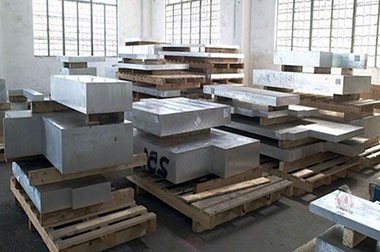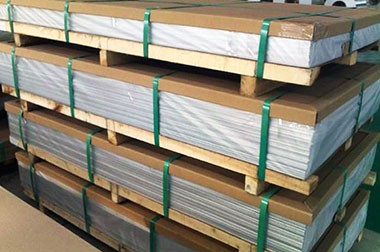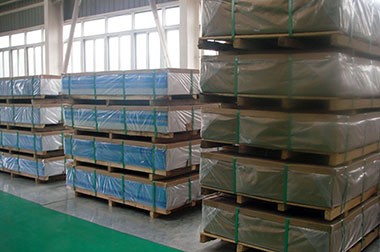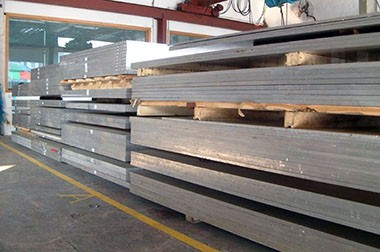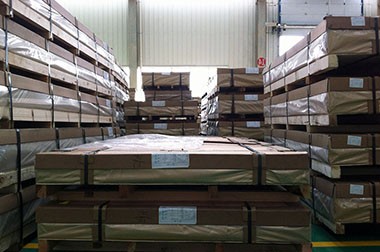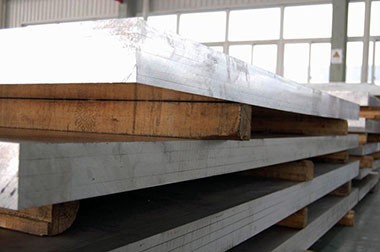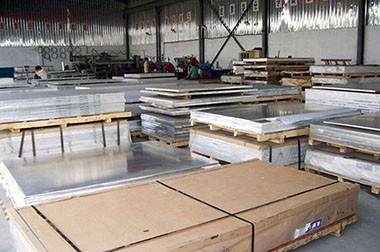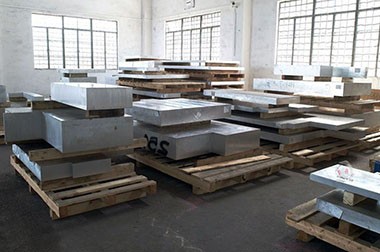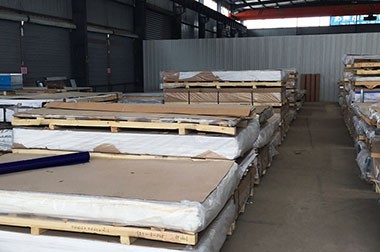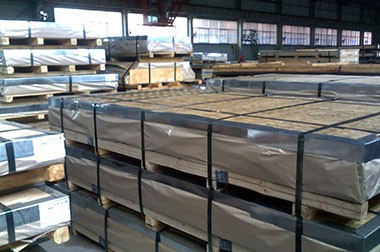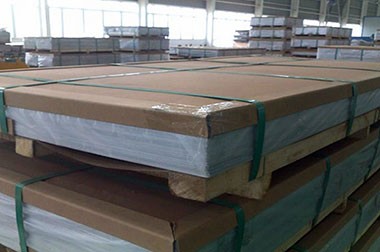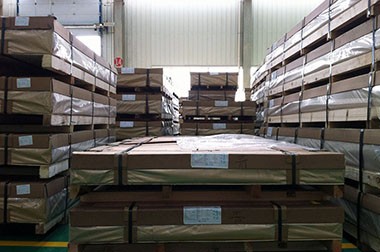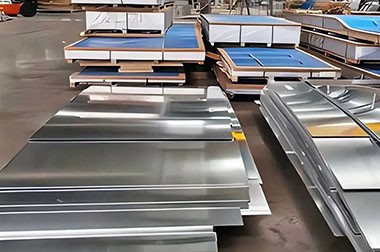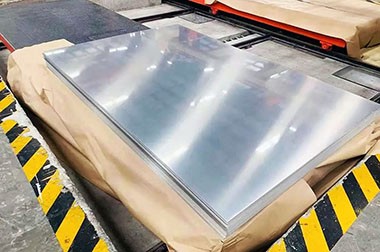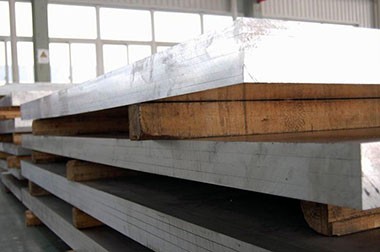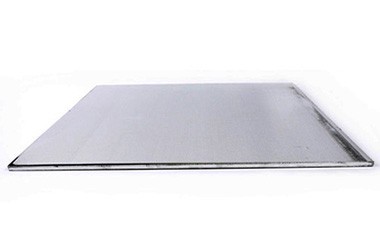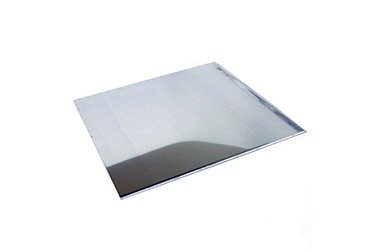7055 T7751 Aerospace Aluminum Sheet Plate
What Is 7055 Aluminum
7055 aluminum is a high-strength alloy mainly composed of aluminum, zinc, and small amounts of other elements such as magnesium and copper. It belongs to the 7000 series of aluminum alloys, known for their excellent strength-to-weight ratio, commonly used in aerospace applications, military vehicles, and other high-performance structures.
Aluminum 7055 is a heat-treatable high-strength aluminum alloy, with an ultimate tensile strength (UTS) of up to 593 MPa, surpassing 7150 alloy. While maintaining excellent tensile strength, it also possesses good fracture toughness and stress corrosion resistance. This makes it one of the most advanced commercial high-strength aluminum alloys on the market.
As a high-performance alloy, 7055 aluminum’s high strength, excellent toughness, and corrosion resistance make it particularly suitable for aerospace and other fields that require materials with high strength and reliability. Furthermore, the alloy also performs exceptionally well in terms of compressive strength, capable of withstanding large loads and maintaining stable performance in complex working environments.
7055 aluminum not only has broad application prospects in the aerospace industry but also, with its excellent mechanical properties and stress corrosion resistance, shows potential in other high-strength industrial fields, making it an ideal choice for a wide range of engineering applications.
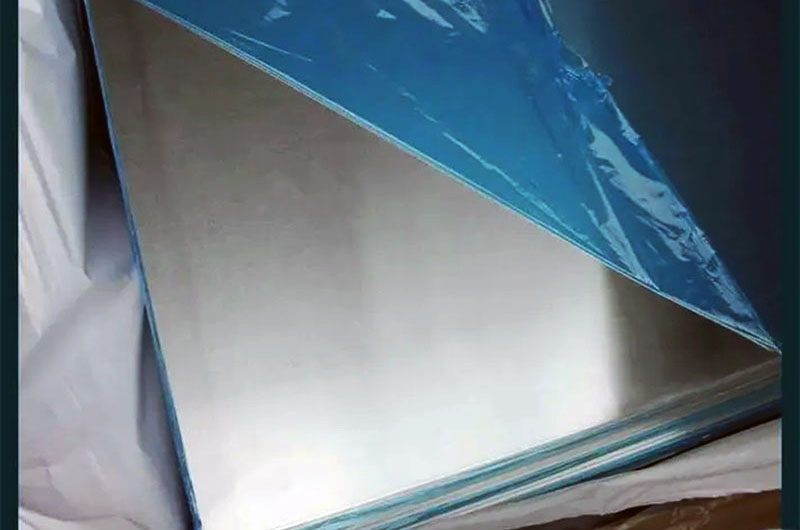
Specification of 7055 Aerospace Aluminum Alloy
| Alloy | Temper | Thickness(mm) | Width(mm) |
| 7055 | T7751 | 4-260 | 1200-3800 |
Properties of 7055 Aerospace Aluminum Plate
- 1. High Strength: 7055 aluminum has exceptional strength, sometimes exceeding that of 7075. In the T7751 condition, its tensile strength can reach up to 860 MPa.
- 2. Corrosion Resistance: Due to the addition of elements like copper, 7055 aluminum has better corrosion resistance than some other 7000 series alloys, making it less prone to stress corrosion cracking (SCC).
- 3. Fatigue Resistance: This alloy exhibits good fatigue strength, meaning it can withstand repeated stress and strain without failure.
- 4. Heat Treatable: It is a heat-treatable alloy, allowing its mechanical properties to be adjusted through specific heat treatment processes.
- 5. Formability: The alloy can be processed into various forms, including plates, sheets, and extrusions, making it suitable for different manufacturing processes.
- 6. Poor Weldability: Like many high-strength aluminum alloys, 7055 is difficult to weld, and welding can reduce its strength.
7055 Aerospace Aluminum Alloy Chemical Composition
| Alloy | Si | Fe | Cu | Mn | Mg | Cr | Zn | Zr | Ti | Standard |
| 7055 | 0.10 | 0.15 | 2.0-2.6 | 0.05 | 1.8-2.3 | 0.04 | 7.6-8.4 | 0.08-0.25 | 0.06 | GB/AMS/EN |
Aluminum 7055 Plate Properties
| Properties | SI Unit |
| Density | 2.86 g/cm3 |
| Ultimate Tensile Strength | 593 MPa |
| Elongation at Break | 9.0% to 12.0% |
| Fracture Toughness | 24.2 MPa-m½ |
7055 Aerospace Aluminum Alloy Mechanical Properties
| Alloy | Temper | Direction | Thickness(mm) |
Tensile Strength Rm(Mpa) |
Yield Strength RP0.2(Mpa) |
Breaking Elongation A50% |
Standard |
| 7055 | T7751 | LT | 6-38 | 635 | 590-610 | 8-10 | AMS4206A |
Aluminum 7055 T7751 Plate
Aluminum 7055 T7751 Plate is a high-strength, heat-treatable aluminum alloy, specifically designed for applications requiring superior mechanical properties and excellent resistance to stress corrosion cracking. The T7751 temper represents a specific heat treatment process that optimizes both strength and toughness, making it a preferred material in aerospace and other high-performance sectors.
| Feature | Description |
| High Strength | Ultimate tensile strength (UTS) around 593 MPa (86 ksi), one of the highest-strength aluminum alloys. |
| Good Toughness | Maintains good fracture toughness, providing impact resistance, especially important in aerospace. |
| Stress Corrosion Resistance | Excellent resistance to stress corrosion cracking (SCC), ensuring durability in highly stressed environments. |
| Fatigue Resistance | Outstanding fatigue properties, crucial for components under cyclic loading, such as aircraft structures. |
| Heat Treatable | Can be heat-treated to achieve optimal mechanical properties. The T7751 temper enhances strength and resistance to cracking. |
7055 T7751 aluminum plate is an ideal choice for high-performance applications, especially in the aerospace industry where strength, toughness, and corrosion resistance are critical. Its outstanding mechanical properties, combined with its ability to resist stress corrosion cracking, make it a highly sought-after material for critical high-stress components.
Applications of 7055 Aerospace Aluminum Plate
Aerospace: 7055 aluminum is widely used in aircraft structures, particularly for upper wing skins and other high-stress components.
Military: Due to its high strength and corrosion resistance, it is also used in military hardware.
High-Performance Applications: Suitable for parts requiring lightweight and high mechanical performance, such as automotive components and sports equipment.
1. Wing Skins
7055 aluminum alloy is commonly used for aircraft wing skins due to its exceptional strength and stiffness. It effectively resists warping and deformation under aerodynamic loads during flight, ensuring the aerodynamic performance and structural integrity of the wings. Additionally, its good fatigue strength makes it suitable for high-frequency flight operations, extending the wing's lifespan.
2. Fuselage Structures
In aircraft fuselage structures, 7055 aluminum alloy is often used for manufacturing frames and skins. Its high strength and low density significantly reduce the overall weight while maintaining strength, thereby improving fuel efficiency and payload capacity. Moreover, its corrosion resistance and oxidation resistance make it suitable for various extreme environments, enhancing the fuselage's reliability and durability.
3. High-Stress Components
7055 aluminum alloy is well-suited for manufacturing high-stress components such as landing gear and engine mounts. These parts endure significant impacts and loads during flight and landing, and the strength and toughness of 7055 ensure their stability and safety in high-pressure environments. Its excellent machinability also allows for the production of complex shapes and structures, ensuring design flexibility.
What is the difference between 7075 and 7055 aluminum?
Both 7075 and 7055 aluminum alloys are high-strength aluminum alloys widely used in aerospace and other fields requiring high strength and lightweight properties.
1. Strength
- The tensile strength of 7075 aluminum alloy is typically suited for high-strength applications.
- The tensile strength of 7055 aluminum alloy is higher, especially after heat treatment.
2. Corrosion Resistance
- 7075 aluminum alloy has relatively poor corrosion resistance and is prone to corrosion in certain environments.
- Due to its compositional design, 7055 aluminum alloy generally exhibits better corrosion resistance, making it suitable for harsh environments.
3. Machinability and Weldability
- 7075 aluminum alloy is relatively difficult to machine and has poor weldability, often requiring specialized welding techniques.
- 7055 aluminum alloy has relatively good machinability, though its weldability remains limited.
4. Applications
- 7075 aluminum alloy is commonly used in aircraft structures, military equipment, sports equipment, and more.
- 7055 aluminum alloy is primarily used in the aerospace field, especially for high-performance aircraft and structural components.
Both 7075 and 7055 aluminum alloys have their advantages and disadvantages, and the choice between them depends on specific application requirements and environmental conditions.
You may also be interested in the following
-
7150 7055 2024 Aluminum for Aircraft Wing Panel
7150, 7055, 2024 have high strength, high toughness, corrosion resistance and other properties, suitable for manufacturing wing skin wall panels, wing ribs and webs and other structural parts.
-
7055 2024 Aluminum Plate for Aircraft Seats
7055 and 2024 aluminum alloy profiles are commonly used materials for manufacturing aircraft seats and are widely used due to their excellent performance.

